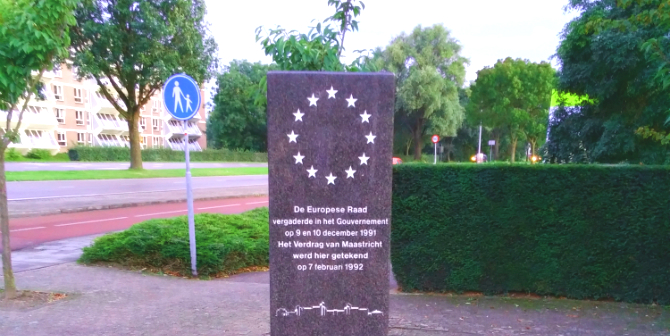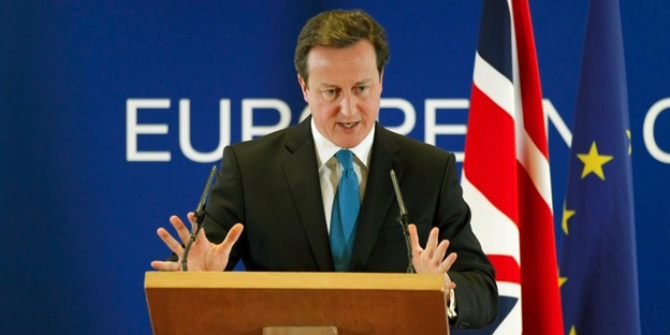Britain’s departure from the European Union would be a disaster for the UK, and an even greater one for the EU. A Brexit could have an explosive effect on an already fragmented EU, possibly leading to its unravelling. Ambassador Antonio Armellini presents his view on the future of European integration, in anticipation of the session of the LSE Commission on the Future of Britain in Europe devoted to the idea of an “Ever Closer Union”.
Keeping the UK in would be a lesser evil. Whatever the outcome, the referendum will force a deep rethinking and restructuring of the EU. The UK’s role would be crucial. So I hope it remains a recalcitrant member – to help fundamentally change the Union.
For Britain, the costs of exit would not be compensated by the purported advantages. A non-EU Britain would be a middling power with limited influence. Over the medium term, its permanent seat on the UN security council would become untenable, especially if Scotland seceded. Britain is crucial for a credible European defence and security policy (and keeping an eye on French exceptionalism). Outside the EU, as President Barack Obama has pointed out, its value would be greatly diminished.
Becoming a maxi Singapore-type financial centre on Europe’s outer rim would not be easy. Paris and Frankfurt would actively encourage a flight (though not a stampede) of bankers and fund managers. British support from outside the EU for a deregulated economy would cut little ice, notably among the eastern European members.
Migrants from the EU come to Britain in large numbers, but quite a few Brits live in other EU member states. Their lot could become less happy if the UK leaves. The idea that the UK could have an amicable divorce and retain access to the single market is an illusion.

All this could of course prove to be wrong. A resuscitated Commonwealth could turn into a political and economic godsend. London’s role could be maintained in an increasingly fraught world. Its supremacy in finance and services could have the better of the attempted competition, and so on. Not impossible, but very unlikely.
Meanwhile, the EU is confronted by crises that threaten its existence. The euro area must somehow transform itself into a politically integrated union, or face mid-term dissolution. Allowing Schengen to buckle under would exacerbate the pan-European migrant problem and sound a death knell for the freedom of movement of people, goods and services.
The political thread joining these crises is increasingly thin. If Britain departed, the gulf between the Anglo-Saxon vision of Europe as a trade pact and the Latin-Germanic concept of a political union would widen further. Further opt-outs would be inevitable. The EU could start unravelling – not in one fell swoop, but gently, in the way of the Holy Roman Empire.
However a more positive outcome is possible. As its classical Greek meaning suggests, the crisis could provide an extraordinary opportunity. There’s no longer any point attempting to reconcile supporters of an ‘ever closer union’ with those like the British who reject the very principle. So the time has come to move towards a radically new set-up: no variable geometries, multiple speeds and the like, but two separate and parallel Europes. One loyal to ever closer union, centred on the euro area. The other based on market liberalisation, centred on the UK.
The Europe of Altiero Spinelli and the Europe of Margaret Thatcher would co-operate within a broader framework of an EU based on market economy, democracy and human rights. At some point this would accommodate Turkey. If Britain leaves, the remaining EU could go decisively for political union, but would probably lack the imagination and will to do so, continuing to plod along in the usual muddle. If Britain stays, we will still have muddle, but the incentive to move towards two Europes would be far greater. The referendum will not have been in vain.
This post, which first appeared on the OMFIF site, represents the views of the author and not those of BrexitVote, nor the LSE. Image by Dozura (CC BY-SA 4.0).
Antonio Armellini was Italian Ambassador to India between 2004 and 2008. He is a member of the International Institute for Strategic Studies and Istituto Affari Internazionali, and a member of OMFIF’s Advisory Board.







